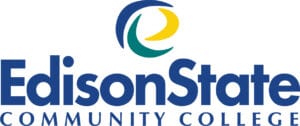 With the ever rising costs of a post-secondary education, attending a Trade School is considered one of the best educational values for anyone looking to improve their skill set. Nationally, Trade School attendance rose 60% between 1999 and 2014, according to NCES, the National Center for Education Statistics. The average graduation rate for a 4 year institution is 60%, whereas, Trade Schools graduate nearly 77%* of their students. An important factor why Trades are becoming a popular Norm is simply financial. The average Trade School Certificate costs $33,000, which, when compared to a $127,000 Bachelor’s Degree** is an easy call to make.
With the ever rising costs of a post-secondary education, attending a Trade School is considered one of the best educational values for anyone looking to improve their skill set. Nationally, Trade School attendance rose 60% between 1999 and 2014, according to NCES, the National Center for Education Statistics. The average graduation rate for a 4 year institution is 60%, whereas, Trade Schools graduate nearly 77%* of their students. An important factor why Trades are becoming a popular Norm is simply financial. The average Trade School Certificate costs $33,000, which, when compared to a $127,000 Bachelor’s Degree** is an easy call to make.
Edison Community College Trades Certification
Greater than half of the training certificates awarded require less than a year of schooling at a Trade School or Community College. Locally, Edison Community College has a couple of manufacturing short term technical certificates, CNC Programming and Advanced Manufacturing Systems. Besides their core focus, the short term certifications teach students a few invaluable skill sets. Edison’s 12 Credit Hour, CNC Programming Technical Certificate includes Blueprint Reading/Sketching (R/S) and Metrology, the science of measurement, skills of which are in high demand in manufacturing. According to PayScale.com, CNC Programming grads can expect to earn $16-$19 per hour to start. Additionally, Edison’s 15 Credit Hour, Advanced Manufacturing Systems Technical Certificate also includes Blueprint R/S & Metrology, as well as AutoCAD I.
 A couple of two year, 31 Credit Hour, certificates offered by Edison Community College will earn graduates $20 + per hour.^ The Computer-Aided Drafting/Computer-Aided Engineering (CAD/CAE) Certificate is ideal for the student who is mechanically/technically inclined. An exceptional grasp of mathematics and geometry is necessary to excel in this program. Another 2 year certification offered by Edison, a trade in extremely high demand, is the Supply Chain Management Certificate. The program covers the complexity of warehousing, logistics, and securing materials in the Supply Chain. We all experienced disruptions in our national supply chain in one form or another because of COVID 19 and have a better understanding of how fragile and vulnerable our supply chain systems can be.
A couple of two year, 31 Credit Hour, certificates offered by Edison Community College will earn graduates $20 + per hour.^ The Computer-Aided Drafting/Computer-Aided Engineering (CAD/CAE) Certificate is ideal for the student who is mechanically/technically inclined. An exceptional grasp of mathematics and geometry is necessary to excel in this program. Another 2 year certification offered by Edison, a trade in extremely high demand, is the Supply Chain Management Certificate. The program covers the complexity of warehousing, logistics, and securing materials in the Supply Chain. We all experienced disruptions in our national supply chain in one form or another because of COVID 19 and have a better understanding of how fragile and vulnerable our supply chain systems can be.
Between 2009 and 2012, Trade School graduates averaged $42,000, compared to $27,000 for college graduates, according to BusinessInsider.com. With the aspiration of Vocational Certificate, you could land a great position and enhance your bottom line.
Current Manufacturing Outlook
Over the last 3 years, HR Associates has witnessed a 30% surge in wages (WOW) at most manufacturing facilities, up and down the I-75 corridor in west-central Ohio. Low unemployment has led to a supply-and-demand competition for workers, which is still happening. Resulting in an increase in real dollars, going into the pockets of Ohio’s workforce, in turn, the workers spend their earnings with local business. We believe we are seeing a post-COVID economy coming back stronger and better than ever. For qualified candidates, we have a large number of great manufacturing jobs available today, including several welding and CNC positions. For anyone with a Manufacturing /Trade background, it is a great time to move to the Miami Valley.
*collegfactual.com **thesimpledollar.com ^payscale.com

247-A S. Garber Drive, Tipp City, Ohio


